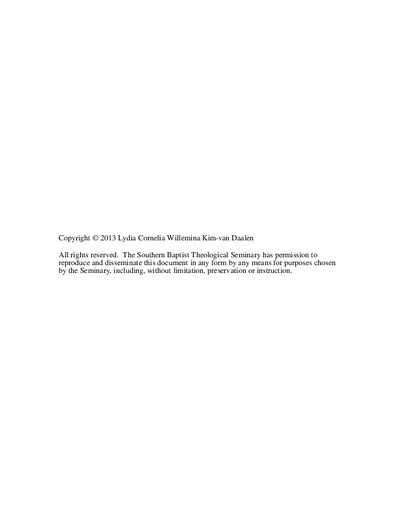| dc.description.abstract | The role of emotion with regard to human functioning and human well-being has been a topic of much consideration and debate throughout the ages. In both secular and Christian fields of study (e.g. philosophy, theology, biology, psychology, and psychotherapy) people have examined emotional experience from different vantage points. Since the second half of the 20th century renewed interest in the importance of affect in human life is especially notable in disciplines such as neuroscience, psychology, and psychotherapy. This is reflected, for example, in the development of a secular psychotherapeutic model that understands experiential engagement to be a crucial key to psychological change, namely Emotion-Focused Therapy (EFT).
There is no distinctive Christian counseling model that has as its main paradigm emotion experience. Yet, several Christian models exists in which experiencing emotions is considered to be important in the process of change.
The thesis of this work is that the theologically and psychologically sophisticated Christian emotion-focused model of therapy suggested in this dissertation will correct and enhance existent Christian and secular emotion-focused models.
Chapter 1 covers the thesis of the dissertation, reasons why the dissertation makes a helpful contribution to the field, background information, methodology, and delimitations.
Chapter 2 presents theological reflections on the topic of emotion, especially as it pertains to topics such as the nature of emotions, emotional health and disorder, and emotional healing.
Chapter 3 consists of an examination of secular Emotion-Focused Therapy. This chapter will discuss this model and assess what aspects can or cannot be used by a Christian Emotion-Focused approach.
In chapter 4 three contemporary Christian models that use emotion experience in their counseling approach are described and evaluated. These are Theophostic Prayer Ministry developed by Smith, Inner Healing Prayer as defined by Tan, and the Elijah House model of the Sandfords.
The purpose of this dissertation is to contribute to the field of Christian psychology by proposing the necessary elements of a comprehensive Christian Emotion-Focused model that is a corrective to existent models. Based on the research of the previous chapters, a preliminary outline of such a model is presented in chapter 5. | en_US |

